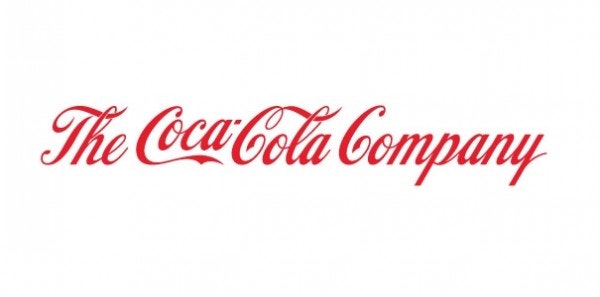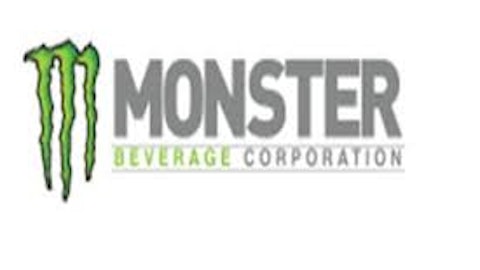Have you tasted the new Kickstart? Tell me honestly, despite those secret adventure streaks that you have in you did it really appeal to you enough to make you forget your morning cup of coffee or your glass of orange juice? My apologies if it did because the new Kickstart did not pep up my morning for sure.

It’s true that soda sales are falling and the latest Beverage Digest industry newsletter does corroborate that fact amply. The carbonated beverage industry experienced its third-consecutive year of declines in 2012 and the pace of decline is fast increasing.
In 2010, there was a drop of 0.5%, in 2011 it doubled to 1% while 2012 saw a decline of 1.2% and a steeper 1.7% if you leave out energy drinks. So the soda market is contracting and both The Coca-Cola Company (NYSE:KO) and PepsiCo, Inc. (NYSE:PEP) are looking to diversify into new businesses.
PepsiCo has an upper hand in this regard on account of its thriving snack-foods business, which contributes almost equally to the top line as the beverages. The Coca-Cola Company (NYSE:KO), on the other hand, is almost a pure beverage play.
Now both these companies are trying to make it big in alternate beverage sectors like bottled water, juices, packaged tea and energy drinks. They have several solid brands in the non-carbonated beverages like PepsiCo, Inc. (NYSE:PEP)’s Tropicana and Gatorade and The Coca-Cola Company (NYSE:KO)’s Minute Maid. The latter has recently acquired European juice company Innocent to increase its exposure in this segment.
Of the non-carbonated beverages, however, energy-drinks are growing most rapidly. Analysts estimate that the energy-drink segment will grow as much as 86% over the coming five years and take on a size of almost $12 billion in the US.
The market is dominated by Red Bull and Monster Beverage Corp (NASDAQ:MNST). In 2012, the former sold over 5 billion cans of energy drinks in 165 countries while the latter sold over 2 billion cans in around 90 countries. According to the industry newsletter Beverage Digest, Monster and Red Bull were the fastest-growing brands in the non-carbonated beverages segment in 2012 and the duo has witnessed volume growth of 19.1% and 17%, respectively.
PepsiCo currently has a mere 3% share in the energy drinks market through its Amp brand drinks. The Coca-Cola Company (NYSE:KO) is even further behind, with a share of just about 1.3% through its drinks such as Nos, Full Trottle, etc.
Current statistics show that although the U.S. energy drink market is expanding, performance stemming from the soda giants is quite disappointing. As per the Nielsen reports for the 12-week period ended Feb. 16, sales of energy drinks in dollar terms increased 5.7%. Sales of Amp during this period, however, declined 17.6%. Sales of Full Throttle were also on the decline, falling 2.3%, although The Coca-Cola Company (NYSE:KO)’s NOS brand increased 11.7%.
In comparison Monster and Red Bull grew 8.1% and 10.8%, respectively. So while it’s no surprise that both companies would devise new strategies for garnering share in this market, what’s surprising is PepsiCo, Inc. (NYSE:PEP)’s performance.
It seems that the only intention behind calling Kickstart a morning beverage and not a regular energy drink is the company’s intent to avoid the regulatory and legal woes that are currently weighing heavy on the energy drinks sector. PepsiCo has cited the lower caffeine content as the reason why it refuses to call Kickstart an energy drink.
Kickstart has 90 mg of caffeine in each 16-ounce can compared to 160 mg in Monster drinks and 142 mg in PepsiCo’s own Amp drinks. But the packaging, the taste, and even the ad campaign are so similar to other energy drinks that it’s very difficult to think of Kickstart as anything else.
In fact it has only 5% juice content – just the bare minimum that is allowed by the FDA for a beverage to be classified as a juice. The marketing of Kickstart as a juice and a morning beverage is already receiving negative press from nutritionists and social lobbyists.
If PepsiCo, Inc. (NYSE:PEP) were aiming to take on established players like red Bull and Monster Beverage Corp (NASDAQ:MNST), it could have either revamped its existing Amp drinks with new flavors or spent of new marketing ideas.
Or, if it had to go for a fresh brand, it should have come out with more than just two flavors in the offering. It’s worth noting that Monster Beverage has as many as 27 flavors while Red Bull has recently launched three new variations – the cranberry-, lime- and blueberry-flavored Red Bull. This takes up Red Bulls flavor count to six.
It looks very unlikely that the Kickstart will launch PepsiCo in the energy-drinks market or even be a true breakfast beverage alternative if that was at all the company’s intent. There are lots of developments at PepsiCo, Inc. (NYSE:PEP) that carry enough possibilities for me to remain optimistic about the company. But this latest maneuver to venture into the energy market through the backdoor by disguising a regular energy drink (albeit with lower caffeine content) as a wholesome morning beverage is a little disappointing.
The article What Will “Kickstart” do for PepsiCo? originally appeared on Fool.com and is written by Eshna De.
Copyright © 1995 – 2013 The Motley Fool, LLC. All rights reserved. The Motley Fool has a disclosure policy.


